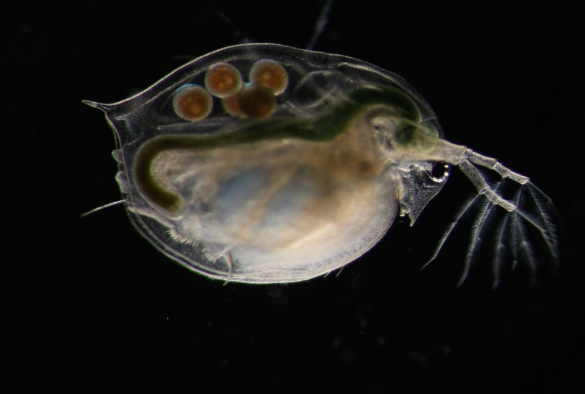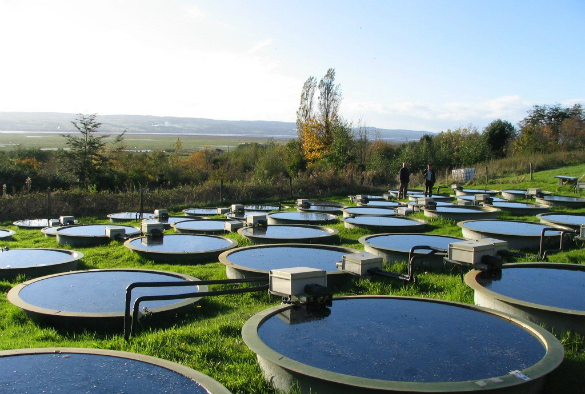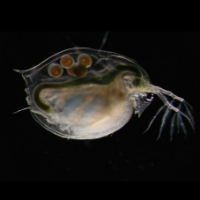
Water flea (Daphnia magna)
The University of Liverpool’s Institute of Integrative Biology has been awarded £1.8 million to help discover how well species can adapt to environmental change caused by human disturbance.
The work has been funded as part of the Natural Environment Research Council’s (NERC) Highlights programme, and aligns with their strategic vision of putting environmental science at the heart of sustainable management of the planet.
Limits to change
Dr Stewart Plaistow, Dr David Atkinson and Professor Steve Paterson have been awarded £1.2 million to investigate what limits the ability of species to adapt to a changing environment.
Over the next four years the team will study rapid evolution in Daphnia magna, a water flea that has a major impact on water quality and the health of freshwater ecosystems. They will examine the response of D. magna, and its associated ecosystem, to heat waves. Field experiments will be performed in 48 identical ponds at Ness Botanic Gardens, which are being rebuilt as part of the project.
The study will also exploit the latest DNA sequencing technologies to better understand the genetic mechanisms underlying adaptation to climate change, and investigate the potential importance of two further processes – plasticity and epigenetics.
Dr Plaistow said: “These processes are central to questions about what limits the ability to adapt to environmental change, since they could allow the animals to adapt far more rapidly than they would by conventional evolution alone.”

Experimental ponds at Ness Botanic Gardens
Meanwhile, Dr Ilik Saccheri and Professor Greg Hurst have been awarded £0.6 million as part of a £1.3 million project with the University of York and the University of Bristol to investigate the speed of evolutionary responses to environmental change.
Over the next three years, the researchers will make extensive use of Natural History Museum collections to compare historical against present-day DNA from 30 British butterfly and moth species. The degree of genetic change associated with recent climate change will be characterised, in order to better understand the limits to adaptation.
Dr Saccheri said: “Distinguishing the ecological, demographic, and genomic factors that determine species’ responses to environmental change, and how these depend on evolutionary responses, will allow us to identify potential conservation strategies in the face of ongoing climate change.”
Professor Tim Wheeler, NERC’s director of science & innovation, said: “I am delighted to announce these new projects in my first few weeks at NERC. It is great to see how the community is responding to the challenges and opportunities identified in the highlight topics and proposing excellent science in these important areas.”
For full details of the funding announcement please visit the NERC website.
